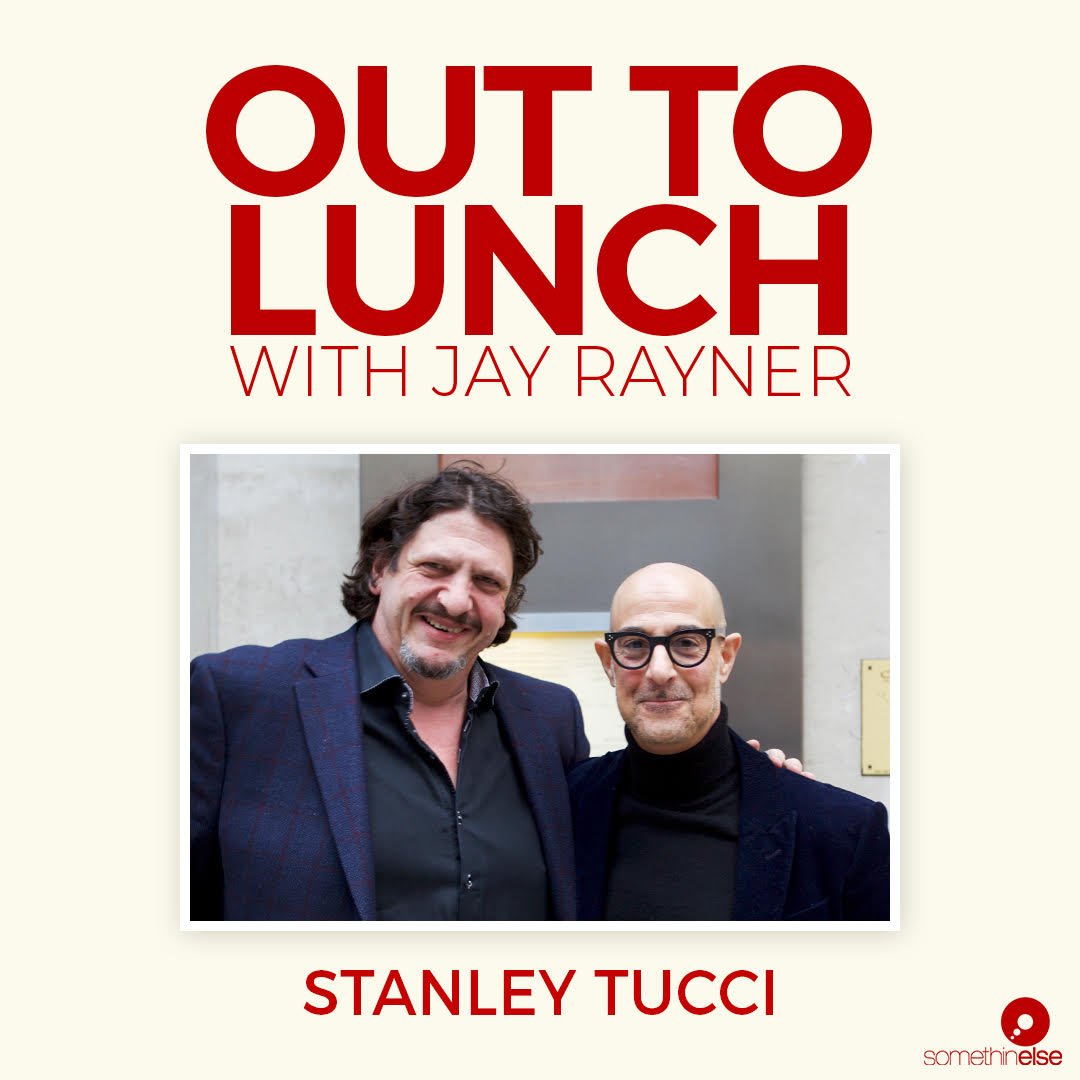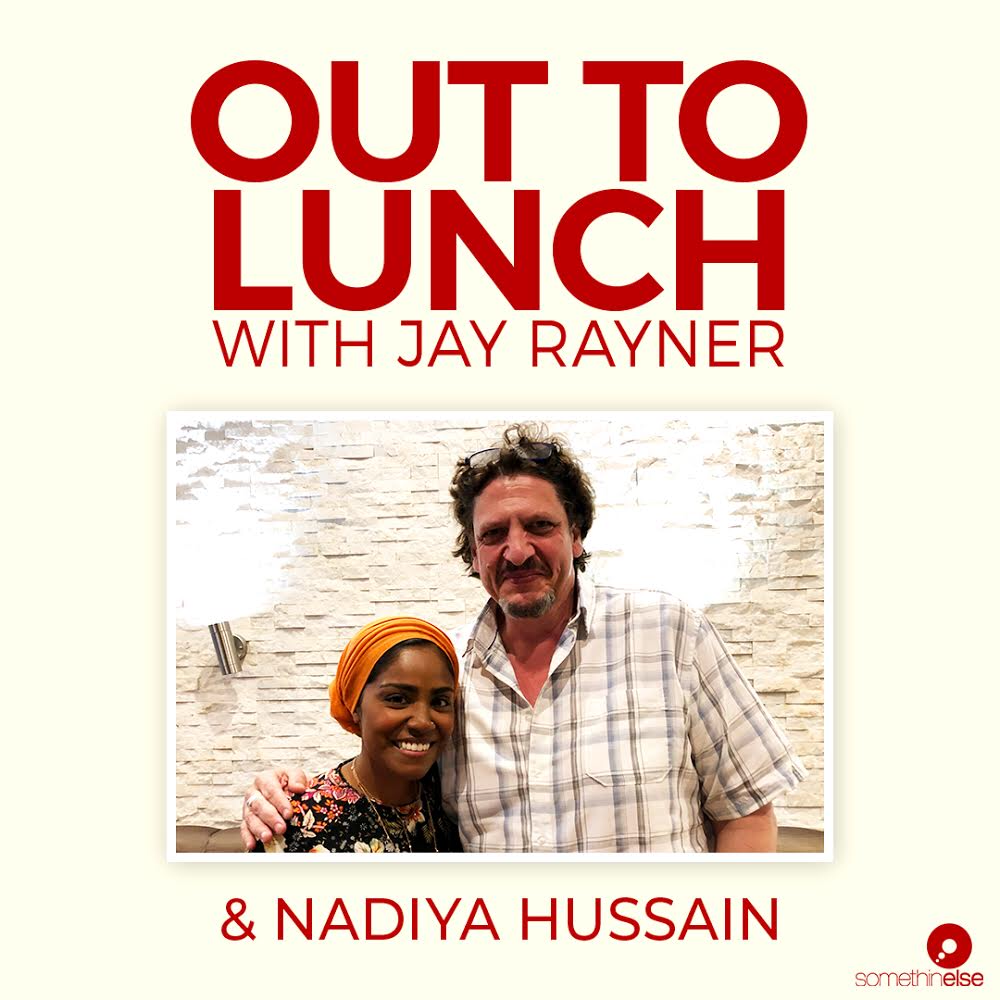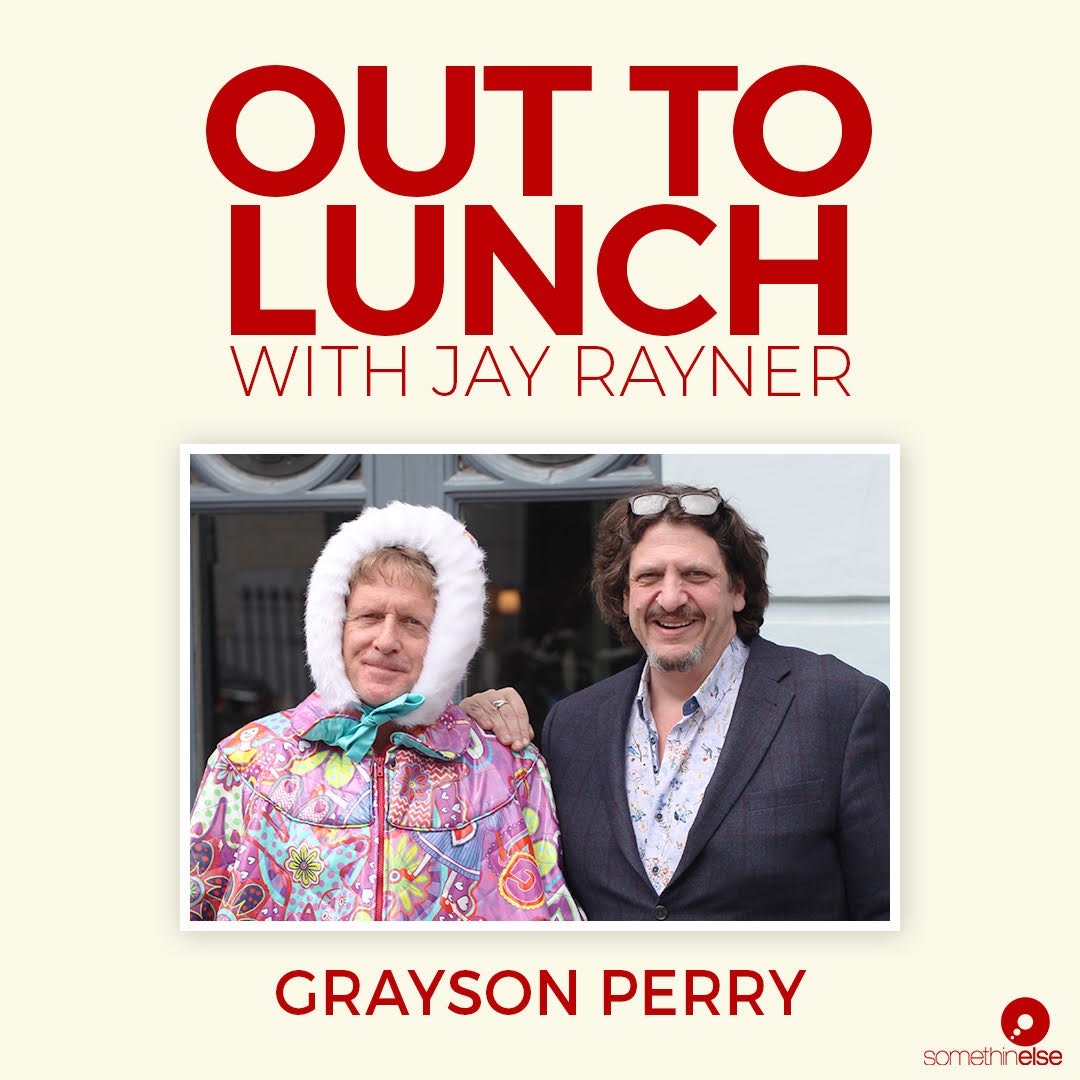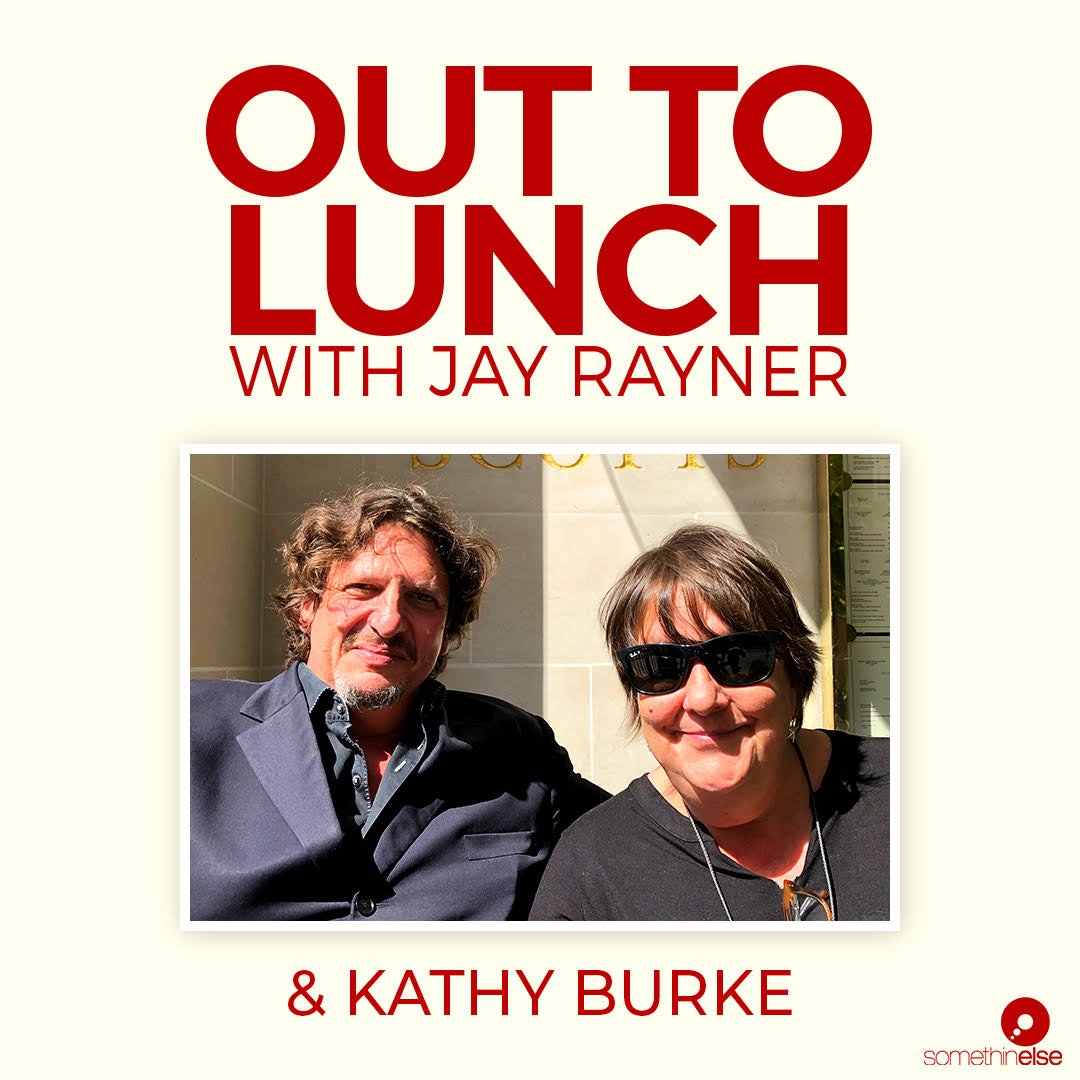Time to Clear the Table
Or farewell to hosting Out to Lunch
(To skip to where I explain why I am stepping back from Out To Lunch click here.)
When the idea was first put to me, appropriately enough over lunch, I didn’t think much of it. I should host a podcast in which I interview famous people in restaurants? Why would anyone want to listen to that? But Jez Nelson, boss of the production company Somethin’ Else, was insistent. It would work. That’s why he is now co-head of global podcasting for the whole of Sony Music Worldwide.
Because he was right, although it took a while to prove that. We recorded the pilot episode with the brilliant actor Richard E Grant, in March of 2016. That finally became the first episode in November of 2019. Don’t ask me what was going on in between. There was some technical stuff that needed to be sorted, but for the most part we were all just a bit busy.
That first interview, like the very last episode, was recorded at Sartoria, the very lovely Italian restaurant of the very lovely chef Francesco Mazzei. White truffles were involved. I remember looking at the set up before we began — a single table sitting lonely in the middle of one of their private spaces, a microphone up above where we would each be seated — and thinking this would be a little odd. It wasn’t. What I realised as Richard and I started talking, was that the dynamic of a restaurant meal — the studying of menus, the taking of orders, the bringing of dishes — was a superb way of relaxing everyone. Very quickly the microphones were forgotten. We were just talking. There really is no better place for disclosure and gossip than a well laid restaurant table.
“The dynamic of a restaurant meal — the studying of menus, the taking of orders, the bringing of dishes — was a superb way of relaxing everyone”
Or at least that’s how I wanted it to sound and, for the guest, to feel. For me it was very different. People think of the job of restaurant critic as distinct from the job done by others writing for newspapers. I don’t. It’s just journalism. I have been a journalist for over 35 years and the one principle I have stuck to throughout is this: there is no substitute for research. You can be welcoming to and interested in someone, but if you haven’t done your homework it’s useless. That first time with Richard E Grant I was nervous about keeping the conversation flowing for over 90 minutes. And so I read everything I could about him. I listened to him on other podcasts and watched him in as many films as possible.
It's been that way across the more than 100 episodes of Out To Lunch that I’ve recorded. I would start with a briefing document, put together by my fabulous colleagues, and then build on it. If there was a book by the guest, I would read the whole thing. I would watch the film. I would get a sense of them. I didn’t just want an interview. After all, high-profile people like those on Out To Lunch had all been interviewed many times. I wanted a better interview or, at the very least, a different one. In this, it was the same job as I had always done. People love to talk about the distinctiveness of a new medium like podcasting as against old media: newsprint, magazines, TV and radio with their armies of commissioners acting as gatekeepers. And yes, there are differences, not least the fact that subjects regarded as unimportant by those gatekeepers could now be allowed to find an audience, however obscure they might be. But it’s also worth looking at the similarities. The biggest of those is the need for editing. I despair when I search up a podcast and find it’s over two hours long. Clearly they just opened the mics, talked and then put the whole damn thing into the electronic ether. On Out To Lunch, as with all the best podcasts, we would record for 90 minutes to two hours. We then cut it down to the best 40 minutes or so.
Key to Out To Lunch, I think, was motive, by which I mean the motive of the guest. I had no problem with anyone plugging anything. You should watch me go when I have a book or show to promote. But I didn’t want us just to be a part of the circuit. As self-regarding as it sounds, and it really is, I only wanted guests who wanted to do the thing, which is to say sit in a restaurant and chat with me, that bloke who reviews for The Observer, or who turns up occasionally on MasterChef. We had a few who said yes and who would then communicate through their ‘people’, a list of what they would and wouldn’t talk about. Oh, okay. We didn’t have a problem with someone saying during the conversation that a subject wasn’t something they felt comfortable talking about. We later cut stuff if they asked. It wasn’t bloody Newsnight. But if we felt we were being managed by PRs then we would gently tell them the plans had changed. We also declined to have PRs sit in. Come back in a couple of hours when lunch is done.
“We later cut stuff if they asked. It wasn’t bloody Newsnight.”
Perhaps unsurprisingly it was the smaller names who tended to turn up with their entourage. The bigger the name, the less flummery. Bona fide stars like Jamie Dornan, Mel C, Gary Barlow and Stanley Tucci arrived alone, ready for lunch. Dietaries were always fun. Many just wanted to be fed. One was allergic to yeast. A couple were quite clear: David Baddiel wanted Indian; Joe Wilkinson wanted Mexican. That was easy to sort. The fabulous Kathy Burke has talked publicly about her health issues which do limit what she can eat. ‘So it’s just fish and chips I suppose,’ she said in her message to me. I took her to Scott’s for seriously upmarket fish and chips.
We lost one recorded episode because two days after the lunch together, the guest made grim anti-Semitic statements to the media. They apologised a little later, but sod that. Another was removed from the feed when it transpired their behaviour was appalling. What remains is around 100 really interesting people talking in a laid-back manner about themselves and their lives, while cooing over terrific food. And who was my favourite guest? Well, I loved introducing Guy Garvey of Elbow to calves’ brains at St John. And getting Tracey Ullman to do the best impressions at St Leonards. And getting down and forever dirty with Miriam Margolyes, a lifelong family friend, at Maison Francois. And listening to Grayson Perry audibly farting in response to a key question at The Draper’s Arms. And revelling in Sharon D Clarke’s honking laughter over Riding House Café’s finest, during one of the Covid lockdown zoom episodes. And talking about the important stuff with David Harewood over top cheese from Paxton and Whitfield. And… you get the idea. I loved them all.
So Why Stop?
There are a couple of reasons. Firstly, I have embarked on a major project which is going to take up an awful lot of my time. There is only one of me. (I’ll talk more about that in 2023; the project not the fact there’s only one of me.) And secondly, I was clear from the start that every restaurant to which I took a guest had to be somewhere for which I could vouch. Either I had already reviewed it, or been there or eaten the chef’s food elsewhere and knew it was great.
We also needed the restaurant to have a private dining room, so we could control the sound. That limited the choices. In the first series we paid for all the meals. Thereafter the production company argued, quite reasonably, that we were getting hundreds of thousands of listeners a month. This was great PR for the restaurants. It was reasonable to ask them to comp the meals if they were up for it. (Obviously no restaurant was required to participate.) But that meant I had to be absolutely sure they were good places. They really have been.
After 100 episodes I was simply running out of restaurants. I was coming perilously close to taking up the offer of places I couldn’t vouch for, just because the PRs had offered them. That would compromise my position as a restaurant critic. I couldn’t let the podcast get in the way of the day job. Far better to stop now before that becomes an issue. This doesn’t mean I’m out of podcasting for good; I love the freedom of it, the way you don’t have to beg commissioners to get your show on the air. I may at some point even return to Out To Lunch, although we hope there will be a great new host picking up the knife and fork in 2023. And I remain the host of BBC Radio 4’s Kitchen Cabinet, the food panel show I have presented for over a decade.
But I rather like the idea of stepping out of something before it gets tired. In any case there’s no shortage of great podcasts out there, and the bumper Out To Lunch library remains. I love the fact they will continue to find an audience. Meanwhile a few thank yous are in order: to Jez Nelson of Somethin’ Else who first proposed the idea and who, with his colleague Steve Ackerman, got it on its feet and steered it to glory; to former exec producer Darby Dorras, who guided the show through so much of its life; to the various assistant producers, including Aniya Das, Bethany Hocken and Jemima Rathbone for research support and so much else; to all the superb sound and mix engineers led by Josh Gibbs, Gulliver Tickle, Paul Brogden and Leaf Trope. And to Producer extraordinaire Selina Ream, without whom I simply couldn’t have done it.
“I rather like the idea of stepping out of something before it gets tired”
And three key thank yous. Firstly, to all my fabulous guests for agreeing to sit down with me and eat while I asked them impertinent questions; to all the restaurants that accommodated us. Please do support them. I only ever took people to seriously good places. But most of all to you for listening. There really is no shortage of great podcasts out there, and the fact that you choose to listen to this one millions of times means an awful lot.
Which was your favourite episode? Tell me in the comments.
You can listen to Out To Lunch here or wherever you get your podcasts.




